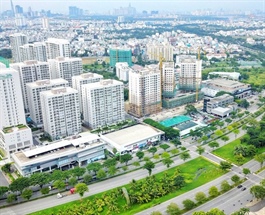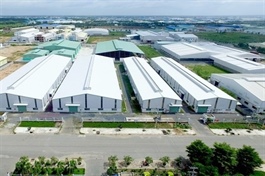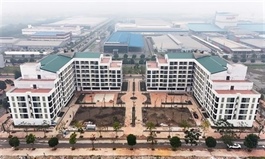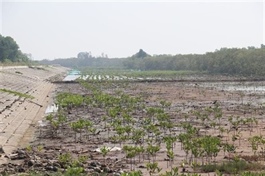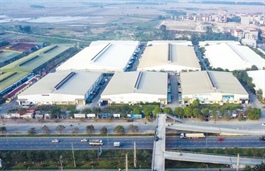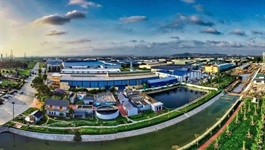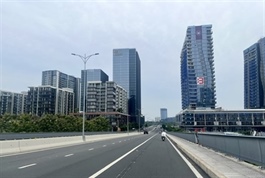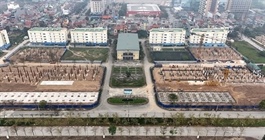More overseas Vietnamese investment in real estate anticipated
More overseas Vietnamese investment in real estate anticipated
The real estate sector is expected to bag wider engagement of overseas Vietnamese thanks to more relaxed regulations on housing ownership.

On May 9, southern developer Danh Khoi Group announced the signing of a strategic cooperation agreement with Knightsbridge Partners, a business-to-business platform for international real estate sales, in hopes of promoting the sale of items belonging to its high-end apartment and trade complex Astral City to international investors.
A source from Danh Khoi Group revealed that the move aims to push up product distribution and project development in international markets, expanding the reach of their products to more customers.
The ‘handshakes’ between local developers and global distributors aim to broaden customer counts, including overseas Vietnamese (Viet Kieu) and international investors.
This is especially significant in the context of three important laws regulating real estate business: the Law on Real Estate Business, the Law on Housing and the Land Law are expected to come into force from August 1, creating better conditions for Viet Kieu to invest and purchase houses in Vietnam.
“Through working with overseas Vietnamese, I realised that most of them have owned certain assets and considered making investments in their home country, even coming back to live in Vietnam,” said Troy Griffiths, deputy managing director of Savills Vietnam.
In fact, current laws allow Viet Kieu to conduct house purchases in Vietnam, yet complex procedures have made them hesitant, and many of whom chose to ask their relatives to help buy property in Vietnam, with the relative names as the ‘real owners’ of the property. This, however, has triggered disputes when incidents occur.
Griffiths assumed that with clearer and more open regulations, the new legal move could facilitate house investments and purchases by Viet Kieu and entice overseas remittance to flow into Vietnam’s real estate market.
The Vietnam Association of Realtors (VARS) assumes that the Land Law 2024 allowing Viet Kieu to be given land use right certificates and can directly partake in transactions aligns with the international trend and constitutes a positive movement.
This will help the country entice more overseas remittance flow to aid the realty market development in the forthcoming time, especially in the context many local developers are starved of capital.
VARS also noted that at present, the real estate market has attracted a large volume of Viet Kieu, and transactions by Viet Kieu also eyes a multifold increase compared to similar period in the previous years.
Trinh Hoai Duc, chairman of real estate investment and management firm RealPlus JSC, opined that in the housing segment, medium and high-end products in big cities’ central areas have grabbed particular attention and investments from Viet Kieu and foreign investors.
For instance, condominium projects in Ho Chi Minh City’s Thu Thiem and Thao Dien areas have 20-30 per cent of units sold to foreign clients.
Duc revealed that new regulations not only facilitate house purchases by foreign customers in Vietnam, but in a broader view help the market entice more capital flows from foreign investors and venture funds, from there boosting supply sources, as well as internationalising real estate offerings.
To charm these investors, VARS has urged local developers to continue research and development of real estate projects with high standards in design, construction quality and utility, serving both residence and investment needs of Viet Kieu, along with diverse media channels to boost project exposure.
Figures from the State Committee for Overseas Vietnamese show that currently about 6 million Viet Kieu are living and working in more than 130 countries and territories around the world.
The number of Viet Kieu has increased by more than 13 per cent compared to 2020, 80 per cent of whom are in developed countries.







